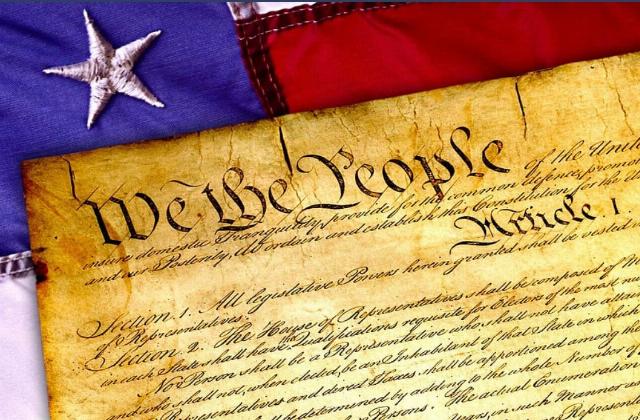Reviving the federalist vision
In the tapestry of American governance, the threads of federalism are fading, overshadowed by the ever-growing silhouette of federal power. As a conservative, I find myself at a crossroads, looking back at the founding principles that once promised a balanced coexistence between state sovereignty and national unity. Herein lies an argument not for division, but for a revitalization of the states' rights doctrine, a return to the vision that could heal our national discord.
The Original Compact
Our Constitution, a document both revered and contested, was never meant to be a blueprint for a monolithic federal entity dictating from on high. Instead, it was a compact among states, a federation where local governance was expected to flourish. The 10th Amendment, often overlooked, stands as a testament to the founders' intent: powers not delegated to the United States are reserved for the states or the people. This was not an afterthought but the very essence of American federalism.
The Erosion of State Power
Over time, we've witnessed an erosion of this principle. Through judicial interpretations, executive overreach, and legislative expansion, the balance has tipped towards centralized authority. This shift has not only diluted state powers but has also contributed to the widening chasm in our national politics. When every policy battle is fought at the federal level, the stakes are unnecessarily high, turning every election into a winner-takes-all skirmish.
A Return to Localism
Why advocate for states' rights from a conservative perspective? Because it embodies the conservative values of limited government, individual liberty, and local control. States, closer to the people, can tailor policies to the unique needs and values of their citizens, from education to healthcare, from environmental regulation to social issues. This isn't about creating fifty different countries, but about allowing fifty laboratories of democracy to experiment, innovate, and yes, sometimes fail, but in doing so, offer lessons and models for others.
Reducing National Tension
Imagine a nation where California can pursue its environmental ambitions without imposing them on Texas, where New York's approach to social issues doesn't dictate life in Alabama. This diversity in governance could defuse much of the national political tension. When states hold more sway, the federal government's role naturally diminishes, reducing the incentive for national political warfare over control of that central power.
The Economic Argument
From an economic standpoint, competition among states encourages fiscal responsibility and economic innovation. States that manage their affairs well will attract businesses and residents, while those that do not will face natural consequences, pushing them towards reform without the need for federal bailouts or mandates.
The Challenge of Uniformity in Rights
Critics argue this could lead to a patchwork of rights, where one's liberties depend on geography. Here lies a nuanced balance. While the federal government should ensure basic civil rights are uniform, not every policy area needs such uniformity. Conservatives must champion the idea that the protection of fundamental rights can coexist with state variability in less critical policy domains.
A Path Forward
To tread this path, we need a judiciary that respects the 10th Amendment, a Congress that legislates with restraint, and an executive branch that does not usurp state roles through regulatory overreach. Moreover, we need citizens who engage actively at both state and federal levels, understanding that their state capitals are as crucial as Washington, D.C.
Conclusion: A Call to Restore Balance
The conservative call for states' rights isn't a call for secession or isolation; it's a plea for restoration of the original federalist balance. It's about recognizing that the best government is often the one closest to the people it serves. By empowering states, we not only honor our constitutional heritage but also foster a political environment where diversity in governance reduces the temperature of national politics. This vision requires courage to trust in local democracy, wisdom to accept varying solutions to common problems, and faith in the American experiment that has always thrived on its dynamic balance of powers. Let us not fear this return to federalism but embrace it as the path to a more united, though diversely governed, America.

Image: PxFuel





